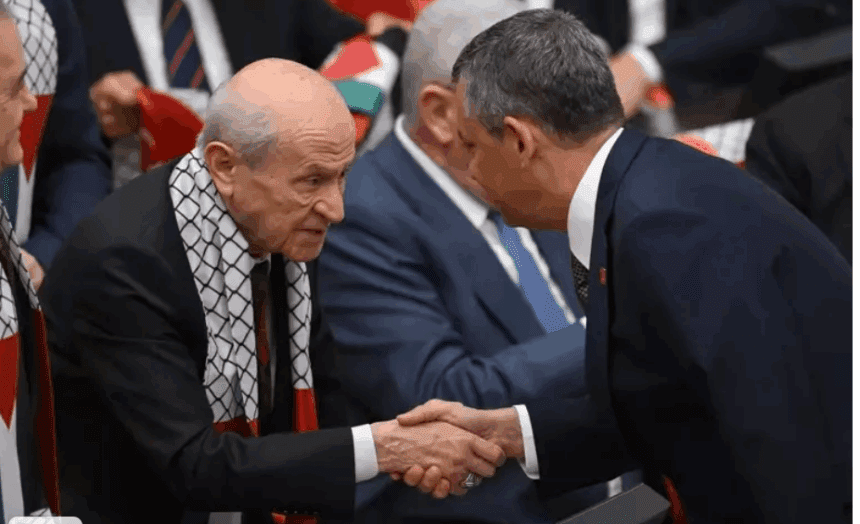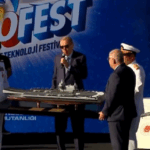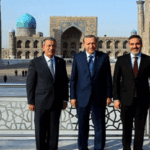Turkey’s parliament convened an extraordinary session on Gaza after a push from seven opposition and smaller parties—the CHP, DEM Party, New Path (Yeni Yol) group, YRP, TİP, EMEP, and the Democrat Party—calling for urgent debate to “stop the inhumane massacre” and expand aid. The sitting ended with a unanimously adopted Speaker’s Memorandum to be circulated to world parliaments, but the day’s optics were the story: MHP leader Devlet Bahçeli, who had loudly dismissed the meeting as unnecessary and accused the opposition of “exploiting Gaza,” showed up anyway and pointedly did not greet İYİ Party leader Müsavat Dervişoğlu. President Recep Tayyip Erdoğan did not attend.
Foreign Minister Hakan Fidan told lawmakers that the “genocide in Gaza has deepened” and announced tighter measures. He said Turkey has closed its ports to Israel-linked vessels and confirmed that Turkish airspace is closed to Israel’s official, state flights. A diplomatic source later underscored the nuance: the airspace restriction applies to official flights, not a blanket shutdown of all Israeli air traffic. The move dovetails with Ankara’s broader stance since May 2024, alongside new port rules adopted on Aug. 22 that are now being enforced, resulting in Israel-linked ships being turned away and Turkish-flagged vessels barred from calling at Israeli ports.
Opposition leaders pressed the government on the gap between declarations and delivery. CHP Chair Özgür Özel accused Fidan of offering “a lullaby to Netanyahu,” arguing that stacked condemnations and headline measures have not translated into rapid, large-scale assistance to civilians. Fidan countered that airdrops are a cosmetic method disfavored by major aid organizations and said Turkish aircraft are ready but require Jordan’s consent and airspace coordination.
İYİ Party Chair Müsavat Dervişoğlu escalated the challenge, insisting the assembly must move beyond statements and symbolism. “Condemning Netanyahu, who toys with the lives of innocent people in Gaza, means nothing,” he said, noting that Parliament has issued condemnations roughly once every three months since Oct. 7, 2023, even as the death toll—by recent counts more than 62,000, with over 300 deaths from hunger—has climbed. Turning to the government, he recalled Erdoğan’s past boast of co-chairing the Greater Middle East Project and said the atrocities had unfolded during Erdoğan’s tenure. “They should not think an ummah discourse absolves them. Do not imagine that failing to act when you could—failing to throw a wrench into Israel’s war machine—will not seize you by the collar in the hereafter. Angels do not record sins and merits from the lies of your painted media.” He questioned the credibility of prior trade claims—“After the lies about cutting trade, who were those who, just weeks ago, said ‘We cut trade’?”—and argued that the burden of responsibility also falls on those who “do deals behind closed doors and then declare, ‘I stand with the oppressed.’” On aid, he contrasted Turkey’s posture with the nine countries that have airdropped supplies to Gaza. “I ask the government—fond as it is of aircraft—has Turkey failed to acquire this capability in 25 years? Or do those who govern lack the intention to use it?” He closed by warning that words without enforceable policy merely mark the calendar of inaction, and he coupled his Gaza remarks with sharp criticism of the new parliamentary commission on the “Kurdish question,” calling its mandate performative unless anchored in rule of law, equal citizenship, and genuine oversight.
DEM Party Group Deputy Chair Gülistan Kılıç Koçyiğit urged Ankara to end any military-industrial inputs reaching Israel, including through third countries, and to pursue a realistic path centered on an immediate ceasefire, prisoner exchanges, and UN-sponsored talks. From the Yeni Yol benches, Bülent Kaya and Selçuk Özdağ pressed for verifiable steps and challenged Ankara’s past alignments, with Özdağ invoking Erdoğan’s “my friend Trump” line to question consistency.
The Speaker’s Memorandum denounces Israel’s occupation and annexation practices, characterizes famine in Gaza as a weapon of annihilation, urges the international community to force a permanent ceasefire and the withdrawal of Israeli forces while ensuring uninterrupted humanitarian access, calls for accountability for genocide and colonial crimes, reaffirms a two-state solution on 1967 borders, and urges the suspension of Israel’s memberships in international organizations, including the UN, until its government abandons genocidal policies. It also invites parliaments to end military and commercial ties with Israel and to join the Group of Parliaments Supporting Palestine established in Istanbul on April 18, 2025.



